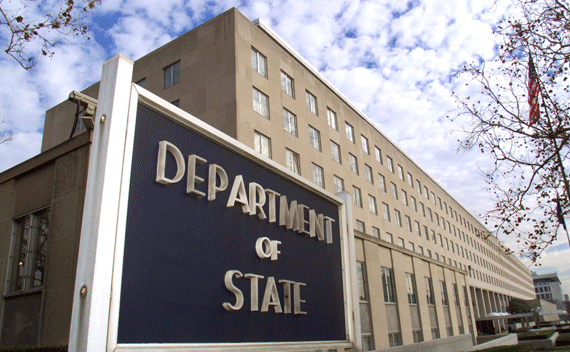
By Fatima Saka
The Plateau State Government, with the backing of the National Emergency Medical Services and Ambulance System (NEMSAS), has established the pilot scheme of the State Emergency Medical Services and Ambulance System (PLASEMSAS), and officially inaugurated the State Drug and Medical Commodities Management Agency Pharma-Grade Warehouse in Jos, Plateau State on Tuesday.
This represents a significant stride in advancing the health supply-chain system and providing top-notch emergency medical services to work towards achieving Universal Health Care in Nigeria.

The Coordinating Minister of Health and Social Welfare, Professor Muhammad Ali Pate, represented by the Permanent Secretary of the Federal Ministry of Health and Social Welfare, Daju Kachollom mni, stated that the commencement of the Plateau State Emergency Medical Services and Ambulance System marks a noteworthy achievement in the collaborative endeavors to revolutionize healthcare delivery in Nigeria.
Professor Pate reiterated that this initiative epitomizes the unwavering dedication of President Bola Ahmed Tinubu GCFR’s administration and the vision outlined in the Nigeria Health Sector Renewal Investment Initiative, with the aim of fortifying the healthcare system and improving population health indicators by addressing crucial gaps in healthcare delivery through substantial investments in enhancing healthcare access and quality for the most vulnerable populations.
Detailing the support for the implementation of this initiative, the Minister mentioned that the Federal Ministry of Health and Social Welfare donated an ambulance equipped with Basic Life Support equipment to the State, with the aim of promoting the provision of additional ambulances and resources to ensure comprehensive coverage of Emergency Medical Services in Plateau State.
“Under the Plateau State Emergency Medical Services and Ambulance System, ambulances will be dispatched to promptly respond to various emergencies, including medical crises, trauma incidents, or accidents, offering transportation to accredited healthcare facilities. Healthcare providers rendering services through this system will be duly remunerated from the allocated funds under the 5% Basic Health Care Provision Fund earmarked for Emergency Medical Treatment.
“This holistic approach seeks to deliver timely emergency responses, ensure high-quality pre-hospital care, decrease mortality rates, and strengthen the overall healthcare system.”
Speaking further, the Minister underscored the pivotal role of the newly upgraded Central Medical Store in establishing an integrated and effective health supply chain for the distribution of essential medicines and public health commodities.
Emphasizing the critical significance of a robust supply chain in underpinning a resilient healthcare system, Professor Pate highlighted the crucial function of storing, managing, and distributing public health commodities promptly and reliably, stressing the potential impact on saving lives.
He noted that Plateau State has set a precedent as the first state to witness the commissioning of its upgraded warehouse, a journey that commenced with the signing of a Memorandum of Understanding (MoU) between the Federal Ministry of Health and the Plateau State Government. “The objective of this collaboration was to establish a government-led supply chain characterized by effectiveness, efficiency, financial self-sustainability, and the provision of quality healthcare services in alignment with the principles of Universal Health Coverage”.
Professor Pate, acknowledging the contributions of the Global Fund, the National Tuberculosis and Leprosy Control Programme, the United Nations Children’s Fund, Land Designs Limited, and other key stakeholders in realizing the upgraded warehouse, emphasized the importance of sustainability.
“The State’s commitment to annual budgetary allocations for warehouse maintenance and capacity building for warehouse personnel, as well as the mobilization and maintenance of ambulances and training of health personnel, will be vital for ensuring the long-term viability of the healthcare system.”
During the commissioning, the Executive Governor of Plateau State, Barr. Caleb Manasseh Mutfwang, praised the Coordinating Minister for the visionary initiatives, emphasizing the significance of the Pharma-Grade Warehouse and the Plateau State Emergency Medical Services and Ambulance System.
Mutfwang highlighted that his administration’s commitment to enhance quality healthcare and access played a crucial role in the new warehouse’s establishment to create a sustainable healthcare infrastructure ensuring the availability of essential medicines and vaccines across all 17 Local Government Areas.
“The state-of-the-art Pharma-Grade Warehouse, furnished with advanced technology and fashioned to global standards, features a cold room maintaining temperatures below -80°C, a modern forklift for efficient inventory management, pallets for streamlined supply movement, a mini-quality control laboratory, and a drug information center.
“This facility is poised to improve the effective management and distribution of pharmaceutical supplies, tackling supply chain challenges and facilitating timely healthcare delivery throughout Plateau State.
Governor Mutfwang, expressed optimism for the warehouse’s potential to support local pharmaceutical production, commending the unveiling of five locally manufactured products and pledging full support for the agency’s collaboration with NAFDAC to ensure sustainability. “As a symbol of hope and progress, the warehouse signifies the collective commitment to affordable healthcare and serves as a testament to the transformative impact achievable through unity, shared vision, and diligent effort in building a healthier future for all Plateau citizens.
“Additionally, the launch of the Plateau State Emergency Medical Services and Ambulance System signifies a crucial milestone in the journey towards accessible and high-quality healthcare for all residents. This initiative underscores the commitment to saving lives, reducing mortality rates, and providing essential support within the healthcare system.
“The PLASEMSAS aims to establish an integrated emergency medical service and ambulance system that delivers prompt, efficient, and accessible care free of charge within the initial 48 hours of an emergency, eliminating financial barriers in critical situations and ensuring timely care for all individuals.
“Looking ahead, the Governor assured that the government will continue to refine the system, engage with communities, and collaborate with stakeholders to seamlessly integrate this service into the broader healthcare framework, encouraging all Plateau citizens to acquaint themselves with and utilize this vital service for their health and well-being.
The Governor expressed gratitude to The Global Fund (TGF) which provided 85% of the project fund (for the physical infrastructure), National Tuberculosis and Leprosy Control Programme (NTBLCP) – the Principal Recipient (PR) to the grant, the United Nations Children’s Fund (UNICEF) – the contractor for the warehouse structure, Land Designs Limited – the technical advisors for the project, and others who played one role or the other in accomplishing the upgrade of the warehouse.
Among important personalities present at the event was the Plateau State Deputy Governor, Ngo Josephine Piyo, Members of the State Executive Council, representatives of the Ministry of Health and Social Welfare, Country Director, GHSC-PSM (USAID), Mr. Chris Wright among others.



